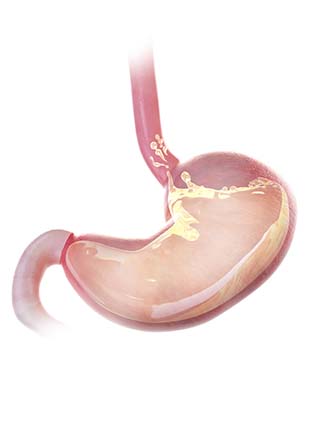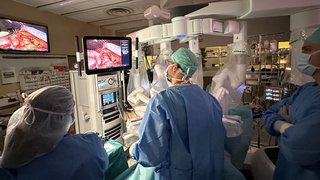Our team of hundreds of leading cancer physicians and oncology-trained support staff is a trusted partner in returning patients with cancer to good health.
Although the specific causes of gastric cancer aren’t fully understood, any type of cancer generally begins when genetic mutations occur in cells. These mutations cause the cells to grow out of control and develop into tumors that can spread to other areas of the body.
Certain factors can increase the risk of developing gastric cancer, including:
- A diet high in salty and smoked foods and low in fruits and vegetables
- Age 50 or older for non-Asian and non-Hispanic people
- Ages 30 to 50 for Asian or Hispanic people
- Bacterial infection with Helicobacter pylori
- Family history of gastric cancer
- Gastric reflux
- Long-term stomach inflammation (gastritis)
- Male gender
- Obesity
- Pernicious anemia, low red blood cell count due to poor absorption of vitamin B12 in the intestines
- Smoking
- Stomach polyps, especially those larger than 2 cm
For some patients, gastric cancer can be related to gene mutations. Examples include hereditary diffuse type gastric cancer (CDH1 mutations), GAPPS syndrome (gastric adenocarcinoma), and proximal polyposis syndrome (APC mutations).
Genetic testing and screening can be very important for early detection, when treatment is most effective. UT Southwestern offers genetic testing for patients with a personal and/or family history of gastric and other cancers. For patients with known mutations in cancer risk genes, the UTSW cancer genetics program also offers comprehensive genetics follow-up services through the Genetic Cancer Prevention Clinic.









